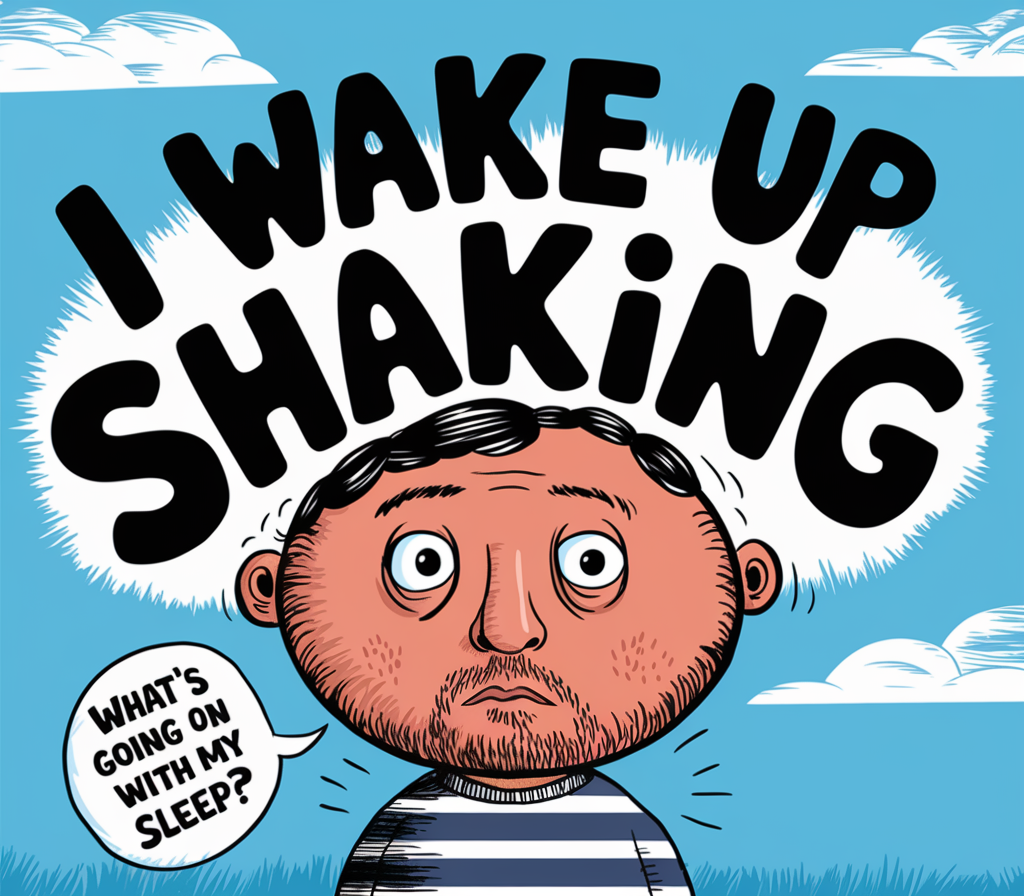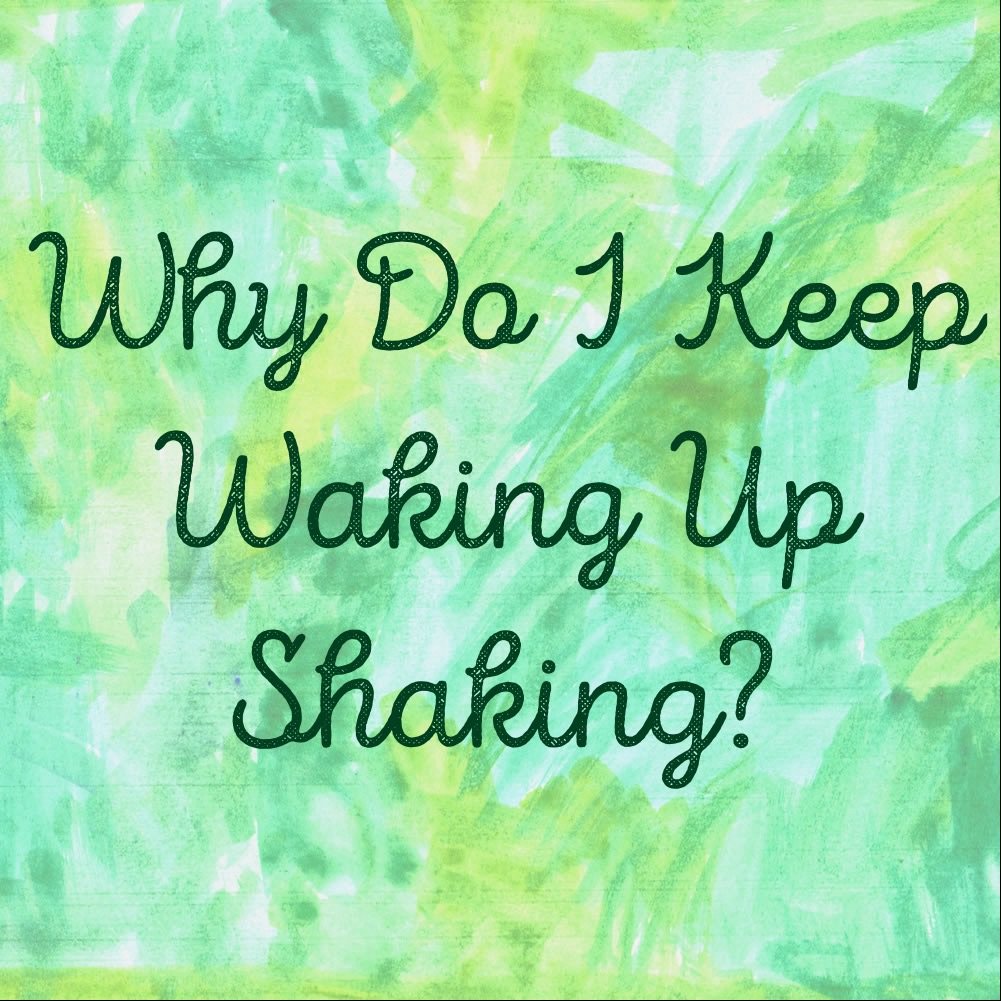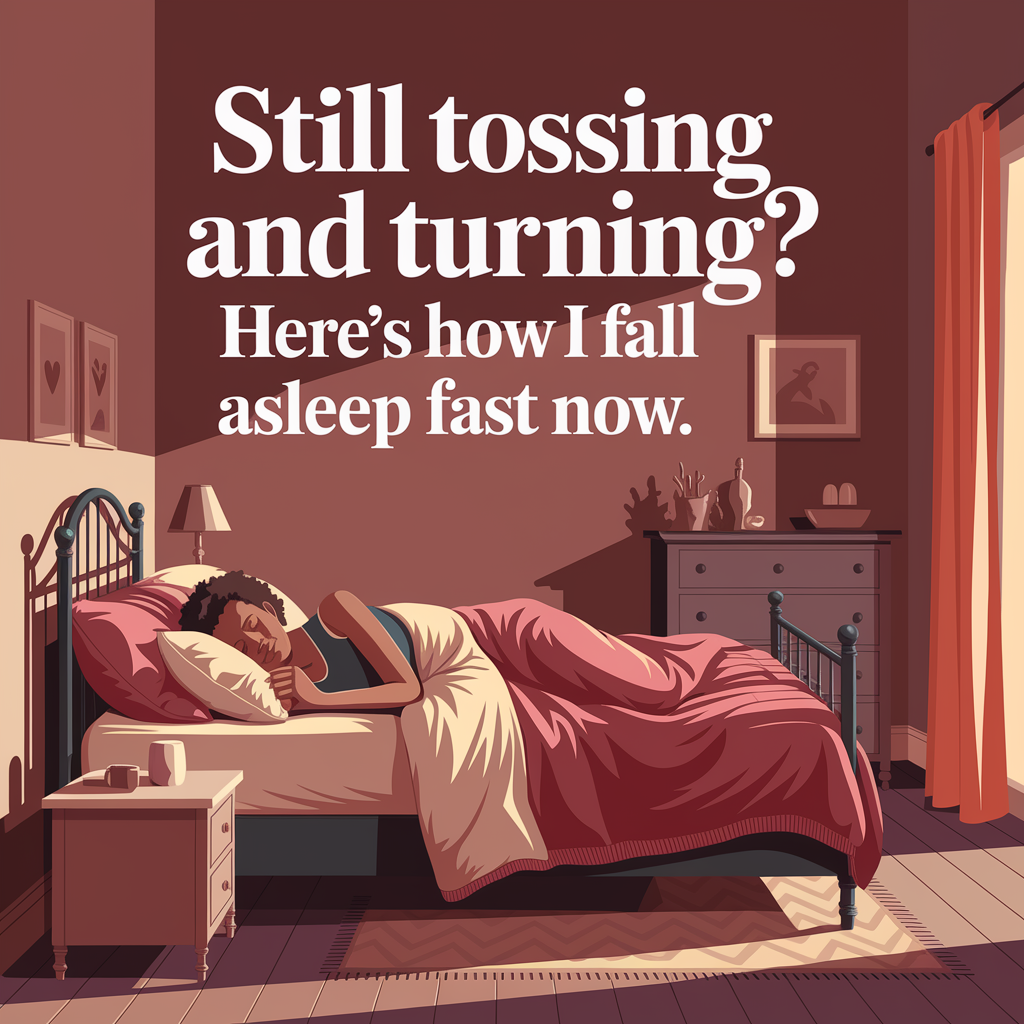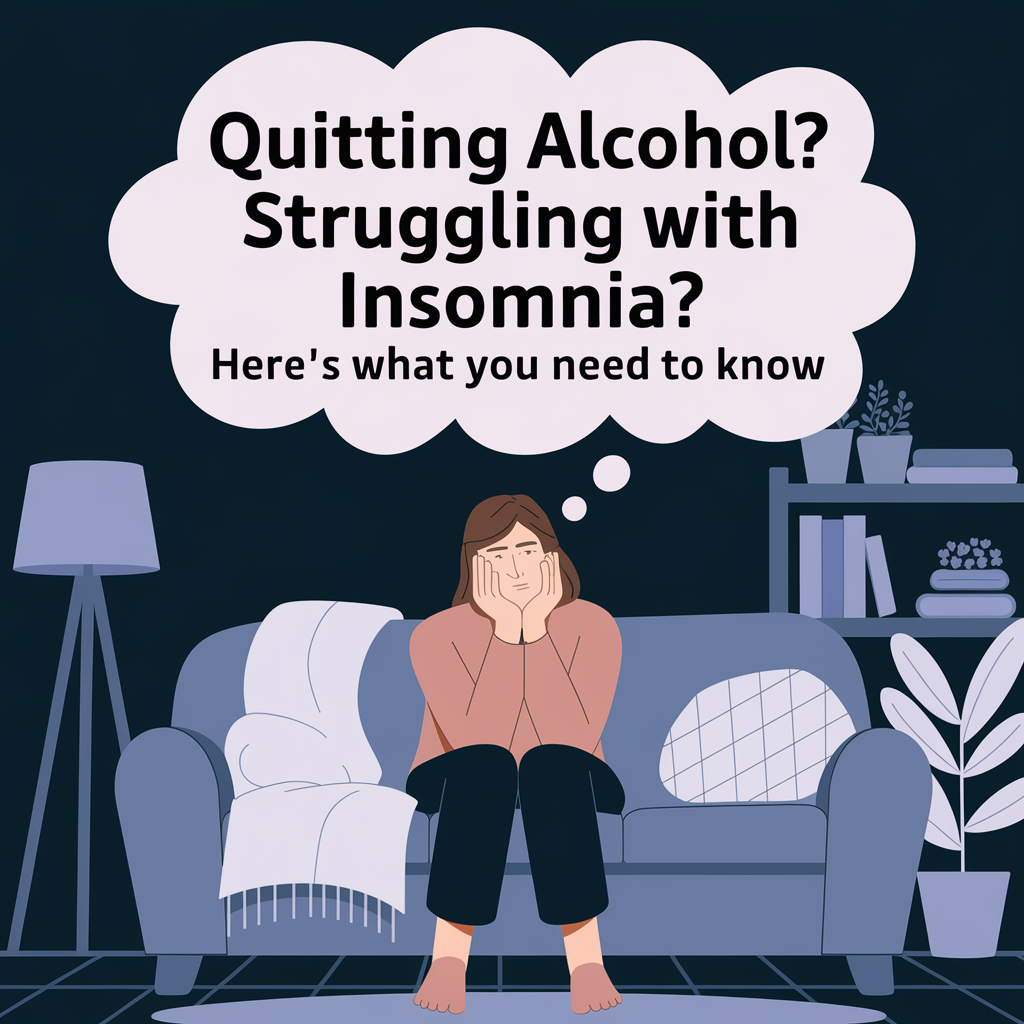
I Wake Up Shaking — What’s Going On?
I’ll never forget the first time it happened—I woke up in the middle of the night with my body trembling. My hands were shaking, my heart felt like it was racing, and I was filled with this strange, uneasy energy. I thought maybe I was just cold, but the room wasn’t even chilly. Sound familiar?
If you’ve been wondering, “Why do I wake up shaking?”, you’re not alone. It’s more common than you might think. The shaking can feel like anxiety, low blood sugar, or even something more medical. But don’t panic—there’s a lot we can unpack here together.
And if this is part of a broader sleep issue, like waking up too hot or too cold, we’ve covered those too. Learn how to stay warm without sweating in this helpful guide, or if you’re always overheated, check out the best AC temperature for sleeping.
Understanding the Types of Morning Shaking
Shaking when you wake up can look different for everyone. Some people feel a full-body tremble, while others just have shaky hands or legs. Here’s a breakdown of what you might experience:
1. Internal Tremors
You feel shaky on the inside, but no one can see it. It’s like your insides are vibrating. This is sometimes linked to anxiety or sleep disturbances.
2. Visible Body Shakes
Your arms, legs, or hands tremble in a way you (or someone else) can see. This could be a sign of a blood sugar issue, neurological trigger, or sleep-related disorder.
3. Weakness and Shakiness
You wake up feeling drained and unsteady, like your body hasn’t recovered. That “weak and shaky in the morning” feeling is often tied to poor sleep quality, dehydration, or even overheating.
If your bedroom is too warm or humid, that alone could be messing with your rest. Check out our breakdown on bedroom humidity and sleep to see if your environment is playing a role.

Stress and Anxiety: The Hidden Culprits
Let’s be honest—most of us are walking around with a pile of stress on our backs. And sometimes, it shows up in unexpected ways… like waking up shaking.
When your nervous system stays in “fight or flight” mode all night, your body can wake up jittery, heart pounding, and shaking. It’s like your body was running a marathon in your dreams.
Here are a few ways anxiety can trigger morning shaking:
- Nighttime panic attacks
- Overthinking during light sleep stages
- Chronic stress hormones (especially cortisol) spiking too early
To get back in balance, look at your bedtime routine. If you’re scrolling through stress-filled news or staying up late under bright lights, that’s a red flag. I’ve found keeping my bedroom cool, dark, and screen-free makes a huge difference. I even added blackout curtains that block light and help regulate temperature better than I expected.
Could It Be Blood Sugar Drops While You Sleep?
One sneaky cause of waking up shaky? Low blood sugar. Especially if you eat dinner early, skip meals, or have fluctuating glucose levels, your body might be running on empty come 5 AM.
Here are signs this could be the cause:
- You wake up with shaking AND feel lightheaded or dizzy
- Your heart is racing
- You feel better after eating something
To fight this, I started having a small protein-rich snack before bed—something like a boiled egg or peanut butter on whole grain toast. I also make sure I hydrate enough, which helps regulate everything from blood pressure to body temp.
If you’ve got a humid bedroom, that could lead to overnight fluid loss through sweat too. I tackled that by using this dehumidifier and honestly, I didn’t realize how much it helped my overall sleep until I tried it.

Shaking After a Nap vs. Waking Up in the Morning
Ever notice the shaking happens after a nap too? That confused me at first — naps are supposed to be refreshing, right? But short naps can sometimes jolt your nervous system, especially if you wake up during a deeper sleep stage.
Here’s why it might feel worse after a nap:
- Your body was in deep sleep and got pulled out too soon
- You were overheated under a blanket or in a stuffy room
- Blood sugar or hydration dropped during rest
One thing that helped me? Making sure the room stays cool while I nap. I now keep a cooling comforter nearby even during short naps to avoid that heat spike that can cause grogginess and shakiness.
The Sleep Cycle Disruption Factor
Our bodies run on patterns, and sleep is no different. When you wake up shaking, your brain might be yanking you out of deep sleep too abruptly — something called sleep inertia.
Here’s how it messes with you:
- Waking up during REM or deep sleep can cause confusion, muscle weakness, or tremors
- Sleep apnea or fragmented sleep can amplify this effect
- Overheating, loud noise, or light interruptions make it worse
Improving your sleep cycles takes consistency and a better bedroom environment. I set my thermostat with a smart WiFi unit that adjusts overnight. If you want to try that too, this is the one I’ve used for 8+ years, and it seriously helped my sleep quality.

Can Medications Cause You to Wake Up Shaking?
Absolutely. And this is something your doctor might not always warn you about clearly.
Here’s a list of common culprits:
- Antidepressants or anti-anxiety meds
- Stimulants (for ADHD or narcolepsy)
- Steroids
- Even some sleep aids can cause paradoxical effects
If you recently started or changed a medication and noticed your body shakes when waking up, it’s worth talking to your doctor. You don’t want to stop cold turkey, but you do want to make sure the meds aren’t doing more harm than good.
And if you’re trying to beat insomnia without meds, this 12-minute strategy changed everything for me.
Don’t Ignore Underlying Health Conditions
Sometimes, waking up shaking is a sign of something deeper. Let’s be real here — while many causes are benign, others are worth checking out.
Potential medical causes include:
- Low blood pressure
- Thyroid issues
- Neurological conditions (like essential tremor or early Parkinson’s)
- Generalized anxiety disorder
- Hypoglycemia or diabetes
If this happens frequently and you’ve ruled out sleep environment and stress, it might be time for a deeper look. Keep a symptom journal and talk to a trusted professional — don’t self-diagnose based on internet info alone.
Also, don’t underestimate how your sleeping setup plays a role. Waking up sweaty, freezing, or in a stuffy room could be aggravating the root issue. Check out these humidity tips if your room ever feels damp at night.

Are Morning Shakes Related to Anxiety?
You bet. Morning anxiety is a real thing — and one I’ve wrestled with for years.
When I used to wake up with my heart racing and hands trembling, I thought something was physically wrong. But many times, it was anxiety showing up the second I opened my eyes. Your body can release a rush of cortisol in the early hours, known as the cortisol awakening response — and if you’re prone to stress, that hormone spike can hit hard.
Here’s what helped me manage it:
- Limiting caffeine in the late afternoon
- Practicing deep breathing or journaling before bed
- Making my bedroom feel like a calm, cool cave — dark, quiet, and soothing
If you’re also battling sleep and anxiety, this guide helped me finally fall asleep faster. You’re not alone in this.
Blood Sugar Drops: A Hidden Culprit
One thing that really surprised me? Low blood sugar in the morning can make you feel weak, dizzy, and yes—shaky.
If you’re waking up feeling shaky in your hands, arms, or legs, especially after a long stretch without food, hypoglycemia could be to blame.
Look out for:
- Sweating during sleep
- Waking up hungry or nauseous
- Shakes that get better after you eat
You might consider having a light, balanced bedtime snack — like almond butter on whole grain toast — to keep things stable overnight. And for those sleeping in hot or humid bedrooms, the combo of poor sleep and sugar crashes can hit even harder. Here’s how I solved the bedroom humidity issue.

Is It Normal to Wake Up Shaking Occasionally?
A question I used to Google all the time: “Is it normal to wake up shaking sometimes?”
And the answer is: yes — occasionally. But when it’s happening regularly or starting to affect your day, it’s time to dig deeper.
It could just be:
- Overexertion from the day before
- Dehydration
- Poor sleep quality or fragmented sleep
But if it starts becoming a pattern, track it. Write down:
- When it happens
- What you ate before bed
- How you slept
- Stress levels or emotional events from the day before
Small patterns can point to big answers. And sometimes, just adjusting your room’s temperature or choosing a better blanket (like this cooling one I swear by) can reduce the odds of waking up uncomfortable or shaky.
Should You See a Doctor About Morning Shakes?
If your shakes are:
- Happening multiple times a week
- Paired with weakness, confusion, or dizziness
- Getting worse over time
…then yes, see a doctor.
You might need some basic lab tests (thyroid panel, blood sugar, etc.), and sometimes even a sleep study can reveal things like apnea or movement disorders. Here’s what to expect during a sleep study — and what to do if you can’t sleep during one.
The good news? Most cases aren’t serious — but they are fixable with the right help and habits. Don’t ignore your body’s signals. You deserve a night of solid sleep and a calm, strong morning.

Are Your Sleep Habits Making It Worse?
Let’s be honest — the way we sleep matters just as much as how long we sleep. I used to crash on the couch with the TV on, lights flickering, room hot and stuffy. And guess what? I’d wake up feeling like I was hit by a truck — and sometimes, yes, shaky.
Here’s what helped calm my system:
- Blackout curtains to block early light — these made a big difference for me
- Keeping my bedroom around 65–68°F
- Avoiding alcohol or sugary snacks before bed
- Going to sleep and waking up at the same time each day
When you create a calming environment for your nervous system, your body can finally relax — and wake up without going haywire.
Could It Be Night Sweats or Dehydration?
If you’re sweating during the night, you might not even notice how much water you’re losing — but your body does. That overnight fluid loss can leave you waking up shaky, weak, or with a pounding heart.
A few signs this could be the issue:
- Dry mouth or lips in the morning
- Headache when you wake up
- Feeling lightheaded or foggy
Using a bedroom dehumidifier (like this one that completely changed our sleep quality) has helped me manage nighttime sweating and humid air.
And don’t forget to drink water before bed — not a full glass that’ll wake you up to pee, but just enough to keep your system hydrated overnight.

Waking Up Shaky After a Nap?
This one used to freak me out too. I’d wake up from a nap, heart racing, body trembling — sometimes even short of breath. But it turns out, sleep inertia is a real thing.
Here’s why it happens:
- If you wake up from a deep sleep cycle, your brain hasn’t fully “come online” yet
- Blood pressure and heart rate take time to stabilize
- Your nervous system may jolt awake too quickly
What helped me was shortening my naps to 20–30 minutes max, and setting a soothing alarm. Oh, and napping in a cool room with airflow made the waking-up process way smoother.
If your naps leave you sweating or feeling disoriented, this article on bedroom temperature fixes will help.

Listen to Your Body and Track Your Patterns
If you’ve been waking up shaking, it’s not just in your head — but it might be coming from your nervous system, blood sugar, stress levels, or even your bedroom environment. And the good news is, you can do something about it.
Here’s a quick recap:
- Watch for patterns: food, stress, sleep schedule
- Try small changes: cooler temp, lighter blanket, blackout curtains
- Hydrate and eat a balanced snack before bed
- Don’t ignore frequent episodes — talk to your doctor if needed
Your mornings don’t have to start with fear or confusion. With the right changes, you can wake up feeling strong, calm, and ready to go.
👉 Want to take control of your mornings? Start by making your sleep environment work for you — explore all our sleep tips and product picks here. You’ve got this.
As an Amazon Associate we earn from qualifying purchases through some links in our articles.



